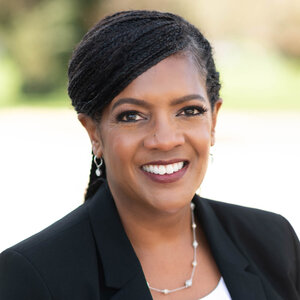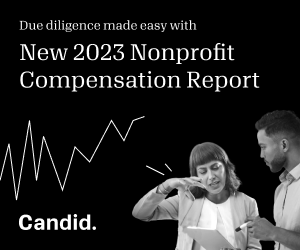Take a step forward for Black liberation

All across the country, Black abolitionists, feminists, and progressives are pushing philanthropy to reimagine what a multi-racial and reflective democracy looks like. We are calling on private foundations, community foundations, public charities, individual donors, LLCs, and donor networks to take a step forward for Black liberation.
Let’s embrace a radical shift that makes a Black political infrastructure and co-governance achievable and sustainable. We do this by fortifying 501(c)(4) organizations that build and influence policy and political power at the local, state, and national levels.
Right now, I am seeing a crisis of fear in the philanthropic sector, with some funders and donors quietly retreating and running for the hills when it comes to 501(c)(4) programmatic and general operating support dollars. Some concerns are legitimate; others, I’d say, are worth examining more closely.
Here’s some of the responses:
- “We are moving in a different direction.”
- “I am not sure we have the capability to do (c)(4) grantmaking right.”
- “Our board (or CEO) isn’t interested in that investment.”
- “I heard that (insert grantee partner name) had some legal or accounting issues; I’m not sure we can do (c)(4) funding anymore.”
- “What if we accidentally jeopardize our 501(c)(3) status? What if a grantee misuses our funds?”
- “What will the press say? We don’t want to be ‘dark money.’”
Now, I know 501(c)(4) funding is not for everyone. I also know where there is a will (as well as legal and risk framework), there is a way. Foundations with access to high-caliber lawyers and accountants can move past the fear and figure out an approach to transformative funding opportunities through expenditure responsibility grants, and individual donors can transcend to the next level by giving general operating funds to the (c)(4)s.
Over the last three years, we at Tides Advocacy awarded over $12 million in 501(c)(4) dollars to over 100 U.S.-based organizations. Then we asked the groups what other support they needed. We heard: viable and effective legal, compliance, and finance resources and systems to hold up their strategy and vision. Yes, plain, ole simple infrastructure to make sure they are audit ready and compliant with the law, while still running high-impact programs and without burning out their staff, volunteers, and leaders. I want to call out the fact that the need for sustainable infrastructure is something we take for granted in philanthropy and tend to skip over for the new ideas and celebrity programs. Further, sustainable infrastructure must include resources to ensure the safety and security of our movement organizations and their leaders. They are fighting for all of our lives. They are experiencing political infiltration, threats to their physical security, leaked information, cybersecurity attacks, and state surveillance. They need general operating support.
In the progressive space, there are many “multi-entity” organizations proliferating and thriving. There are related 501(c)(3), 501(c)(4), and political action committees (PACs) working to support overlapping missions. Folks are very familiar with funding 501(c)(3)s; anyone can give to a charity. PACs often have the advantage of the focus on a hot election to capture the attention of independent political donors or a donor network. The 501(c)(4)s that do the everyday advocacy and political work to make social justice a reality are another story. Executive directors trying to drum up (c)(4) funding navigate a lonely path. What is critical for donors and funders to know is that because of their flexibility, 501(c)(4)s are a key strategy for Black-led movements. They keep vital community building work going year-round, but often face extreme dry spells in resources outside of tokenism and last-minute flow of resources during election season to turn out Black voters. Might we envision a radical shift where Black-led advocacy groups are on par in their funding with a 501(c)(4) giant like the American Civil Liberties Union (ACLU)?
Our project partners and Healthy Democracy Action Fund grantees do a lot with very little and deliver a solid return on investment. They are engaged in community-building work like mutual aid, education and organizing on the issues, bail funds, and voter registration. We understand and champion the importance of undergirding organizations. But when it comes time to level up to mass mobilization to make change and push policy reforms, funders get nervous.
Let’s face it, when philanthropic resources flow only to 501(c)(3)s, we perpetuate the cycle of harm by limiting the perspectives, voices, and advocacy of those most impacted by injustice. Need I say more? Supporting Black-led and BIPOC-led 501(c)(4)s—in all their work—is crucial to transforming America into the country we need it to be: one that respects and supports us all.
I get it, private foundations and other 501(c)(3) funders are bound by the federal tax rules, which are not at the front of anyone’s mind when thinking about Black liberation. The tax rules often make 501(c)(3) funders shy away from supporting lobbying, but here’s the thing: Lobbying is not only a critical strategy for nonprofits to influence policy change, it is completely legal for 501(c)(3)s to do and to fund (though it might mean paying some taxes). Some of the most essential movement-building, change-making work is coming from 501(c)(4)s who are lobbying and advocating for policy change. 501(c)(3) funders must not let endless deliberations about legal nuances serve as a roadblock to much-needed resources for frontline organizers. In addition to allowing lobbying whenever possible in their expenditure responsibility grants to 501(c)(4)s, 501(c)(3) funders can also explicitly allow their 501(c)(4) grantees to spend a portion of the grant on the very real overhead costs incurred in doing the 501(c)(3)-allowable grant activity. To be real, this is more of a question of will for some and of strategy and prioritization for others. And, individual donors must step up to give general support gifts to 501(c)(4)s, allowing 501(c)(4) leaders to build those much-needed infrastructure, safety and security, and electoral-political programs.
There are many champions in the 501(c)(4) funding space, such as Groundswell Action Fund, the Heising-Simons Action Fund, Chorus Action Fund, Way to Win Action, WDN Action, Voqal, and others who have 501(c)(4) funding strategies to support political power-building work.
I invite private foundations, community foundations, public charities, individual donors, LLCs, and donor networks to consider this radical shift. Let’s move in the spirit of progress and collectively shape a future where liberation, especially Black liberation, is within reach. When we invest in 501(c)(4) organizations, we form the bedrock upon which we forge and sustain movements at large, not just political power.
Romilda “Romy” Avila is the CEO of Tides Advocacy, working to strengthen political infrastructure and investments to support power building and policy reform led by and benefiting those most impacted by injustice.








Funders have the wrong idea about democracy and Indian Country